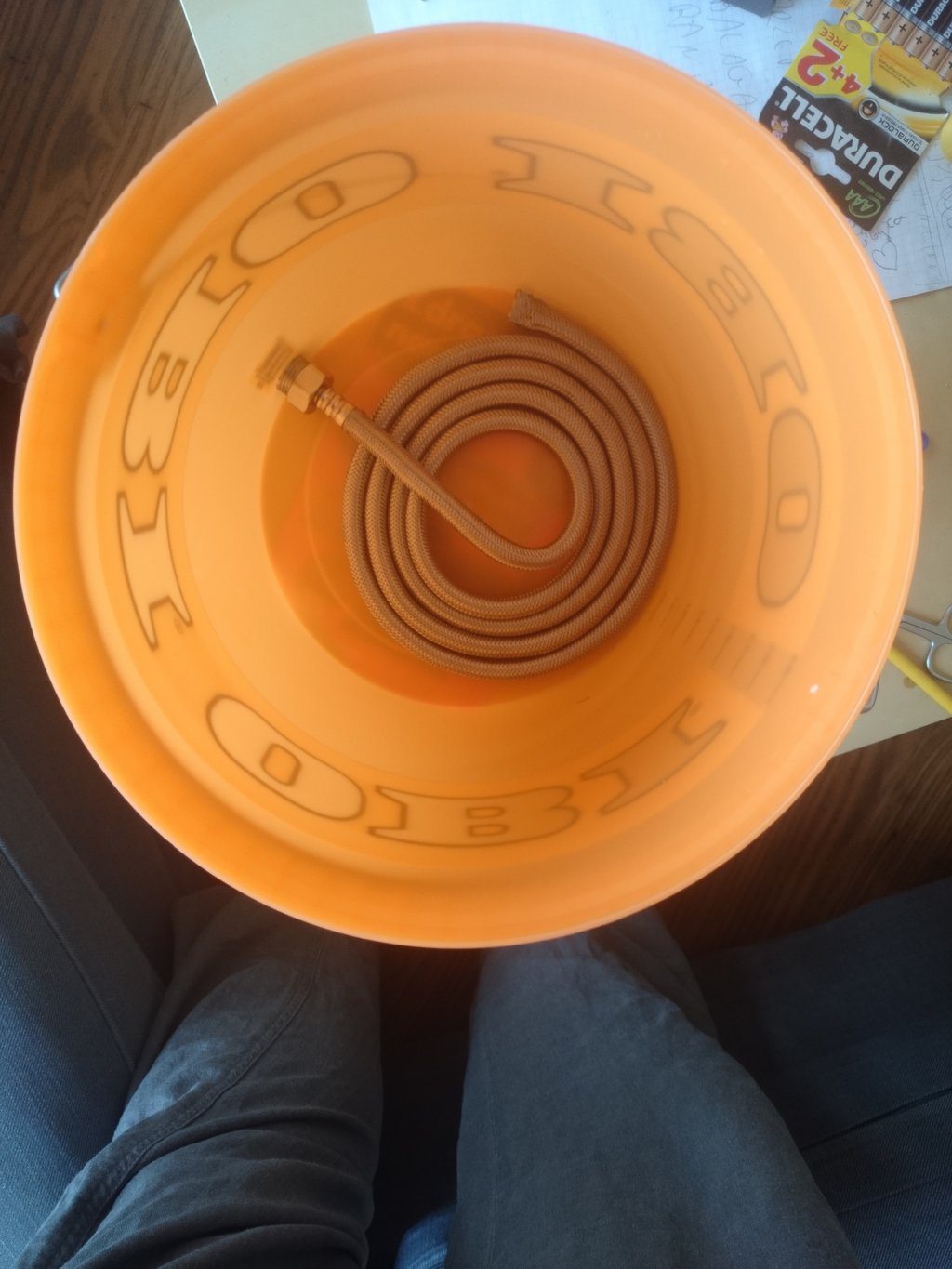I have this problem: I'm regularly achieving 90% efficiency with my mash and sparge, and I like this effect. But I usually end up with about 30 ~ 35 liters when I aim for 20 ~ 22 liters. Boil to reduce water takes long time. So I need to reduce amount of water used without loss of sugars. How can I do it?
My current procedure, shown on most recent example:
I took 6kg of malt (weighted when dry), wet-crushed it, and mashed it in water. Total volume of malt + water was about 20 ~ 22 liters. I received about 13~15 liters of first wort at 18 °Bx. Then, before my filter bed got anything near dry, I started to pour sparge water. I ended up sparge at 2 °Bx, ending up with a total of 35 ~ 37 liters. I didn't mix it up right away, because I don't have pot large enough, so can't tell exact gravity, but at the end I got bit under 22 liters at 17.2 °Bx - perfectly consistent with BrewTarget (expectation was 22 liters at 17.1 °Bx).
Any way to recreate this result without getting to boil away 15 liters of water? Where I might went wrong?
Note - dry vs wet crushing does not change anything in that regard. Wrote it just for completness.
For sparge and filtering, I'm using this:
Except now it's full metal.
